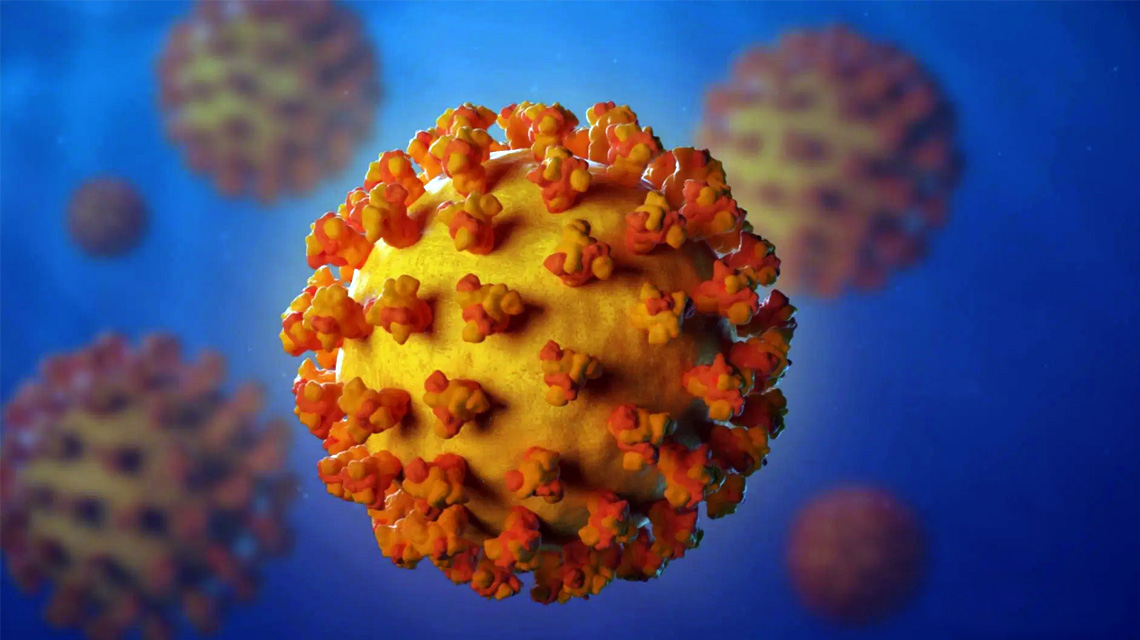Potential Complications of COVID-19 Infection
By Helen PackJul 25, 20211157

COVID-19 pandemic has nearly ceased our lives, an extremely deadly respiratory illness. Its transmission starting from Wuhan, China, in 2019, rapidly took over everywhere. Throughout 2020 and 2021, big developed countries are struggling day and night to somehow end this pandemic.
Millions of people globally have managed to recover from COVID-19 infection at home with mild to moderate or no symptoms. But COVID-19 is much deadlier for a group at higher risk. People with severe health disorders with compromised immunity are prone to potential complications of COVID-19 infection. Individuals with diabetes, cardiovascular ailments, cancer, liver disorder, kidney disorder, or any other long-term illness are at a higher risk of COVID-19 disease. Such people with COVID-19 infection can develop potent health complications, and it is essential to know the risk.
COVID-19 complications may include the following:
An extreme surge in pneumonia infection was the primary sign noted in China. In the case of pneumonia, the air sacs in the lungs are severely inflamed, which results in troubled breathing. Scientists across the world have seen severe lung infections in COVID-19 patients. Lungs were damaged, and they saw images of lungs filled with cell debris, pus, and fluid. In many cases, patients were not able to breathe and transport oxygen to blood to keep the system working.
- Acute Respiratory Failure
It is another very severe complication observed in COVID-19 infected patients. In case of acute respiratory failure, the patient’s lungs are not able to pump oxygen into the bloodstream, or it fails to exhale enough carbon dioxide. Both of these ailments can happen at the same time. In severe cases of COVID-19 in China, the cause of death was acute respiratory failure.
- Acute Respiratory Distress Syndrome (Ards)
During early COVID, acute respiratory distress syndrome (ARDS) was one of the most common complications in infected patients. In ARDS, the lungs are much damaged as the fluid in the air sacs begins to leak; it leads to trouble supplying oxygen to the blood. In such a deadly case, the patient is provided with life support, a ventilator until your lungs recover. Several patients suffering from ARDs do not survive in general, as the risk of severity in this illness is very high. Some people may survive and live with damaged lungs.
Liver damage is another potential complication for severely ill COVID-19 patients, according to researchers. However, scientists are yet unclear whether this virus directly affects the liver or some other complications. The treatment depends on the severity of the condition, and some may require a liver transplant.
Some COVID-19 patients in China developed acute heart problems, including arrhythmias. Researchers who were studying COVID-19 patients in the USA who were hospitalized suffered from some cardiac ailment. However, the reason behind cardiac damage in COVID-19 patients is unclear. These issues are also observed in people who have recovered from COVID-19; the term here is “long COVID” therefore, even if you are recovered safely from this virus, you might experience some health issues.
A secondary infection means that you are infected with another disease, which is not related to the first infection COVID-19. Some hospitalized COVID-19 patients suffered from secondary infections, which are known to occur because of compromised immunity. Secondary infection takes place because of the long-term use of corticosteroids. Such infections are rare but possible. Diabetic patients are more prone to secondary infection.
- Multisystem Inflammatory Syndrome in Children
Some children and teenagers who are hospitalized may suffer from the multisystem inflammatory syndrome in children (MIS-C) or pediatric multisystem inflammatory syndrome (PMIS). Doctors and researchers are still working to understand this condition completely, but they think MIS-C is associated with the new COVID-19 infection. The symptoms are fever, stomach pain, vomiting, diarrhea, rash, headache, and confusion. These are similar to toxic shock syndrome or Kawasaki disease that leads to swollen blood vessels in children.
- Blood Clots and Blood Vessel Issues
COVID-19 viral infection can cause our blood cells to clot or form clumps. These clots can be large enough to cause heart attacks and strokes; it is believed that severely ill COVID-19 patients suffer from blockages due to small clumps in the heart muscles and blood vessels. These blood clumps are also observed in the lungs, legs, liver, and kidney. COVID-19 can also severely damage our blood vessels can trigger them to leak, which adds to potentially long-lasting health problems with the liver and kidneys.